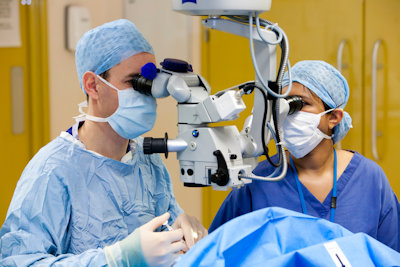What Are the Symptoms of Cataract in the Eye?
A cataract occurs when the normally clear lens of your eye gets cloudy and prevents light from passing through normally to the retina. What are the symptoms? How are cataracts treated? Learn more from the professionals at Elmquist Eye Group.

Dr. Yasaira Rodriguez is Board Certified by the American Board of Ophthalmology and a fellow of the American Academy of Ophthalmology. She specializes in premium cataract surgery, upper eyelid surgery, and in-office procedures.
Cataract Symptoms
Cataracts are an inevitable part of the aging process, but many people don’t even realize they have one until it is discovered during a routine eye examination. The symptoms of cataracts include:
- Cloudy or blurred vision
- Difficulty seeing at night or in low light
- Increased sensitivity to light
- Halos and glare around lights
- Colors seem faded or yellowed
- Needing brighter light for reading and other activities
- Frequent eyeglass prescription changes
- Double vision in one eye
Your eye doctor will dilate your pupils to thoroughly examine your eyes. He or she will also do a few extra tests, such as visual acuity and glare testing, to determine the severity of the cataract.
If cataracts are beginning to form, it’s important to make sure your glasses or contact lenses are strong enough to compensate for your impaired vision. As your cataracts develop further, you can discuss with Dr. Rodriguez whether surgery would be beneficial.
How are Cataracts Treated?
Cataracts cannot be treated with medicines, vitamins or eye drops. Surgery is the only proven treatment. During cataract surgery, the clouded lens is removed and replaced with a customized, artificial lens called an intraocular lens (IOL).
Cataract surgery is one of the safest surgeries performed in the U.S. today, with a success rate that exceeds 95%. The procedure is quick, most patients experience little or no discomfort, and clear vision is usually restored within a few days.
Elmquist Eye Group is pleased to offer refractive laser-assisted cataract surgery, a procedure that is designed to make the treatment more precise, safer and more accurate. Of course, there are risks with any type of surgery, and they should be discussed with Dr. Rodriguez before surgery.
For more information about the symptoms of cataract, or the causes and treatment options, get in touch with Elmquist Eye Group at (239) 936-2020 and schedule an appointment. The Elmquist team will be delighted to help.
